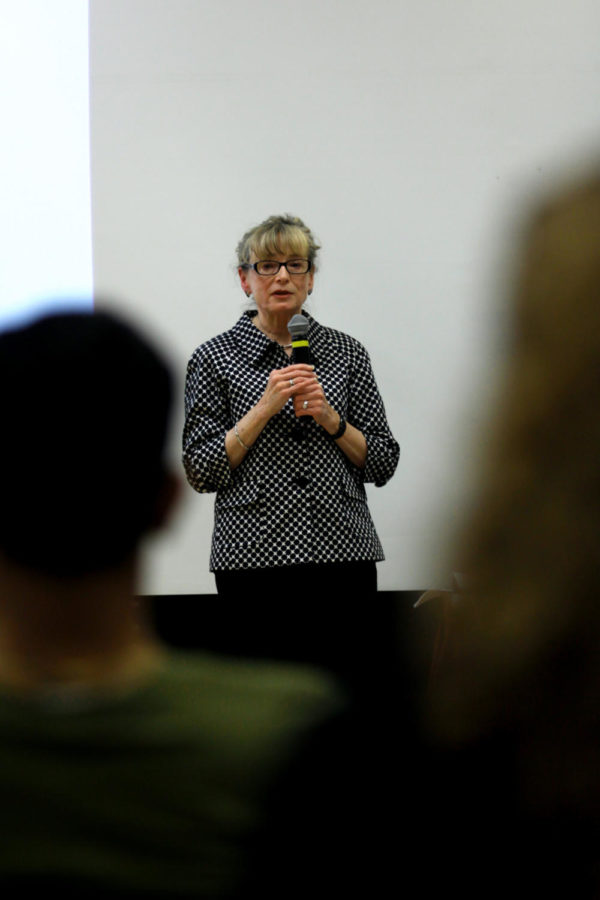Iowa’s membership of Midwestern education organization has saved state millions
Olivia Madison, then dean of the library, addressed GPSS on the matter of renovating Parks Library to allow for more individual study space for students October 28, 2013. Madison has served as an Iowa Commissioner for the Midwestern Higher Education Compact since 2011.
July 29, 2019
Iowa was one of the last states to join the Midwestern Higher Education Compact (MHEC), and every year, its membership generates savings for the state.
The contribution of $100,000 from Iowa in the 2017-18 MHEC budget generated a savings for the state of $1,442,818. Since joining the compact in 2005, the state has saved a cumulative $9,861,996, according to data from the MHEC.
Olivia Madison, professor emerita and dean emerita of library services at Iowa State, has served as one of the five Iowa commissioners of the compact’s 60 total — each state is allocated five — is currently vice chair of the organization’s executive committee, and chair elect.
Madison said she had not been aware of the compact’s existence until she had been asked to put her name forward for an appointment under former Gov. Terry Branstad. She has since been re-appointed by Gov. Kim Reynolds.
“Each state has dues that they pay to MHEC, and they rarely change,” Madison said. “Whenever the state [has] budget problems, it looks for any dollar it can find … particularly under Gov. Branstad, in his second term where there was budget shortfalls, there was a question over continuing the MHEC membership.”
Madison added “it doesn’t take long” after getting legislators in a meeting to show how much Iowa saves by being a member of the compact.
Once a state joins the compact, any entity in the state that has a role in public or private education can benefit from MHEC programs. The Ames Public Library benefits from MHEC hardware contracts, while Iowa State benefits from both hardware contracts and software contracts.
“It’s an unbelievably great organization, and the 12 states that participate — they really participate — I mean it’s amazing how they are involved as commissioners, but also through all these different programs: basically the six major contracting programs,” Madison said.
Each institution that participates will probably save money, Madison added. Students can be impacted during budget crises so MHEC looks for ways to make education affordable for students.
The organization recently established a Midwestern “state authorization reciprocity agreement” (SARA). Under the agreement, states “agree to follow uniform processes for approving their eligible institutions’ participation in SARA,” according to the MHEC’s website.
Under the agreement, distance education courses can be taken in participating institutions and the credits can be applied at other institutions “without going through as many hoops.”
One of the programs Iowa does not participate in is the Midwest Student Exchange Program. Under that program, “public institutions agree to charge students no more than 150% of the in-state resident tuition rate for specific programs,” according to the MHEC’s website.
Libby Swedberg, junior in mechanical engineering, is from Illinois. She said it “stinks” students from participating midwestern states cannot use that program to get cheaper tuition in Iowa, but with the automatic scholarship program at Iowa State — it is still cheaper than the University of Illinois to attend.
“It’s been a highly successful program, Iowa has chosen not to participate, out of concern that it might lead more students to leave Iowa to go to school elsewhere,” Madison said.

















